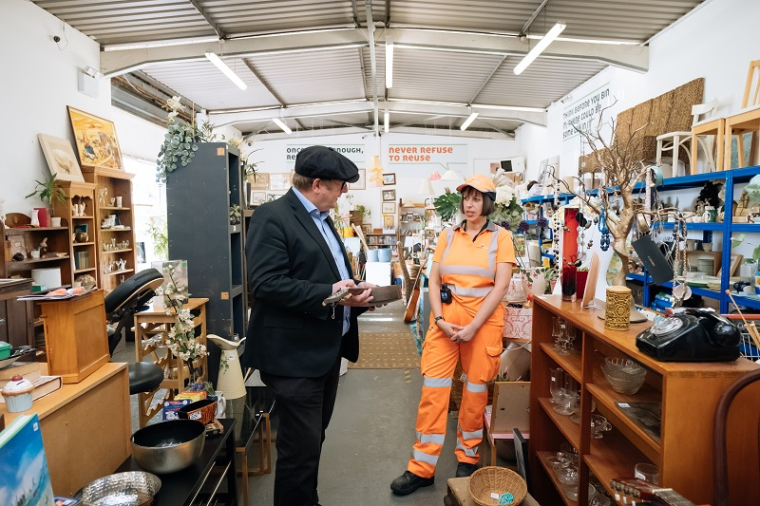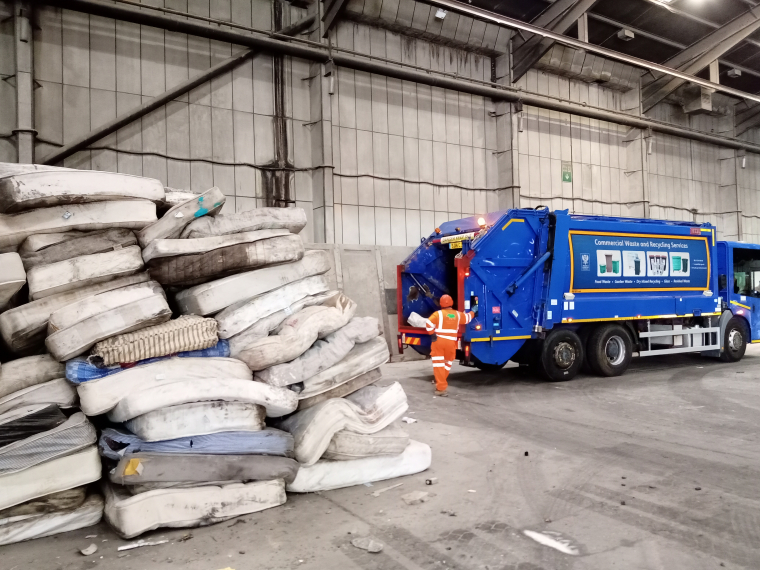Providing opportunities for residents to learn repair skills and access free or low-cost services is an important aim of this plan. We will explore existing initiatives and organisations focused on repair, sharing and reuse with the aim of developing a community-based hub network providing activities and resources for residents to access. We want to help support and bring repair back to the high street, encouraging residents through our communications to utilise local repair businesses. We will promote sharing and hiring opportunities to help avoid unnecessary purchasing of items that are used infrequently or as a one-off. We will also lobby central government to legislate waste out of poorly designed products, ban planned obsolescence and ensure repairability, whilst also calling for investment in the infrastructure required to support the repair and reuse sector.
We will review how we can link our network of Reuse and Recycling Centres (RRCs) to the circular economy by implementing mechanisms to make DIY or other materials available to those who can use them. We will also continue to make reusable items available at low-cost through our ReUse shop. The ambition is to make our RRCs hubs for circularity and sources of materials that can be reused or transformed into new products locally.

The reusable nappy scheme will continue through this plan to provide parents and carers the opportunity to receive a subsidy towards reusable nappies from the constituent borough they reside in. Through this scheme, we will continue to support those considering using real nappies with opportunities to access free information sessions and demonstrations where they can ask questions and get the information, they need to give reusables a go. Through our work with the steering group for the scheme, we will review the current offer including the voucher value with a view to increasing it. Research and trial initiatives to grow awareness of reusable nappies will also be delivered, including exploring opportunities for uptake from other potential users, such as day care settings.
We will promote reusable period products as an alternative to single-use options and provide advice about the products available. We will investigate setting up a voucher, subsidy, or alternative scheme to enable residents to access such products and deliver a campaign with partners to ensure the support is widely advertised.
Textiles reuse is also a significant priority in this plan. We will continue to develop relationships with stakeholders who are working in textile waste prevention and will map existing offers against the behavioural patterns we want to encourage people to change, whilst promoting practical opportunities for people to reduce textile waste. We will work with the pan-London One World Living initiative to identify sector stakeholders and approaches for supporting the textile reuse economy in north London, that will enable us to provide meaningful free and low-cost options for textile reuse for residents.
NLWA has always worked to ensure residents can recycle as many materials as possible. We continue to expand the range of hard to recycle items we manage, like mattresses, and are the first authority to provide a polystyrene recycling service. We will seek reuse and recycling options for other hard to recycle items such as carpets and hard plastics, to ensure we provide the best financial and carbon savings for the constituent boroughs, and we will continue to keep residents informed of the disposal options available through localised campaigns as new items are brought into our recycling service.

